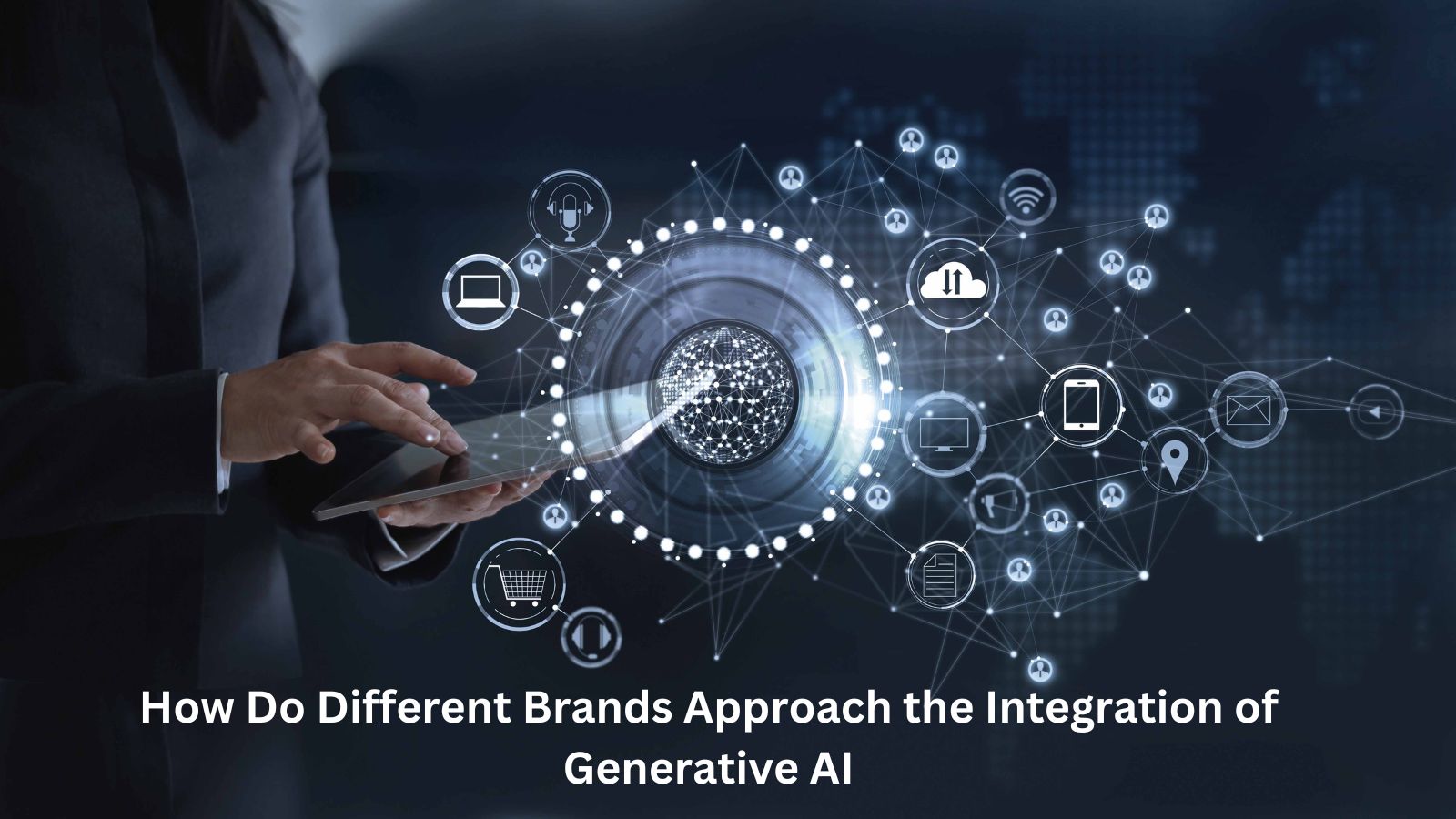Generative AI, a type of artificial intelligence that creates content such as text, images, or even music, is increasingly becoming a key tool in various industries. Companies across the globe are using generative AI in different ways to boost efficiency, enhance creativity, and improve customer experiences. However, not all brands integrate this technology in the same way.
According to Deloitte, many users can use the AI, such as mangers, students, professors, owners and others to handle theri task easily.
Now, to know more about it, let’s explore how different companies approach generative AI, focusing on their unique strategies and applications.
1. Tech Companies and the Use of Generative AI
Tech giants are integrating generative AI into their products and services. It also improving user experiences and business operations through AI desktop PCs.
- Google: Google uses generative AI to enhance tools like Google Translate and Google Assistant, providing more accurate and context-sensitive responses. The company is also exploring AI for content generation on platforms like YouTube, improving video recommendations, and automating content creation.
- OpenAI: OpenAI specialises in generative AI and offers businesses API access to integrate its models into their applications. Its models are used in various industries, from customer service to creative content generation. It allowing seamless integration of AI into daily business tasks.
With devices like AI desktop PC or laptops, top-notch companies provide users with advanced tools to automate repetitive tasks, generate content, and improve productivity, making AI a natural and powerful part of business and personal computing.
2. Retail and E-Commerce Brands
In retail, generative AI is used to enhance customer experiences and streamline operations. Brands like Amazon, Walmart, and Shopify are investing in AI to serve customers better and optimise their supply chains.
- Amazon: Amazon uses AI to improve its product recommendations and customer service. The company’s AI models analyse user data to predict the most relevant products for each customer, thereby enhancing the shopping experience. Generative AI is also used in Amazon’s marketing campaigns to create personalised advertisements and content.
- Walmart: Walmart is utilising AI for inventory management and demand forecasting. By analysing sales data, AI systems can predict trends and help the company stock items more efficiently.
- Shopify: Shopify uses generative AI to help businesses create compelling product descriptions, generate personalised marketing materials, and even automate customer interactions. This enables merchants to save time and resources while delivering more tailored experiences to their customers.
4. Entertainment and Media Brands
In the entertainment industry, generative AI is being employed to generate new content, enhance creative processes, and provide personalized experiences for viewers and listeners.
- Netflix: Netflix uses generative AI to create personalized movie and TV show recommendations for users. Its AI analyzes viewing habits to predict what users are likely to enjoy, improving content discovery.
- Warner Bros.: Warner Bros. has been experimenting with generative AI to create original video content, particularly in animation and video game development. By using AI tools, the company can quickly produce high-quality animations and visual effects for movies and games, streamlining production processes.
- Spotify: Spotify integrates generative AI in music curation and playlist creation. The platform uses AI to analyze listening habits and generate personalized playlists for users. Additionally, AI is helping artists create music by generating new melodies, lyrics, or even entire songs based on input prompts.
5. Healthcare and Pharmaceutical Brands
In the healthcare sector, generative AI is playing an important role in drug discovery, medical research, and personalised treatments. Brands in this industry use AI to analyse vast amounts of data, create synthetic medical images, and even assist in designing new medications.
Pfizer:
- Accurate: Pfizer is indeed utilising generative AI in drug discovery. They employ AI algorithms to analyse vast amounts of chemical data, predict the effectiveness of potential drug compounds, and accelerate the overall drug development process. This has been instrumental in their research, especially during the development of COVID-19 treatments like Paxlovid.
DeepMind:
- Accurate: DeepMind, under Alphabet (Google’s parent company), has made significant strides in applying AI to healthcare. Their AI models have been used to predict diseases, analyse medical images, and even generate synthetic medical data for training other AI systems.
Medtronic:
- Partially Accurate: While Medtronic is a leader in medical device innovation, its specific use of AI in device design might not be as prominent as in drug discovery or AI-driven healthcare applications. However, they are exploring AI and machine learning techniques to optimise their products and improve patient outcomes.
6. Automotive Brands
Automotive companies use generative AI to design new vehicles, improve safety features, and optimise manufacturing processes. Brands like Tesla, Ford, and BMW are exploring how AI can drive innovation in the industry.
The EY says that generative AI (Gen AI) is poised to reshape industries by revolutionising operating models, transforming value chains, and altering economic dynamics.
- Tesla: Tesla is known for its innovative use of AI in self-driving cars. The company uses generative AI to simulate real-world driving scenarios, helping its vehicles learn to navigate complex environments. Tesla also uses AI to optimise its manufacturing process, improving efficiency and reducing production costs.
- Ford: Ford is leveraging generative AI to enhance the design process of its vehicles. Using AI-powered tools, the company can quickly generate multiple design prototypes and test their functionality in virtual simulations, reducing the time and cost associated with traditional design methods.
- BMW: BMW uses generative AI to improve vehicle safety features, such as collision avoidance systems and driver assistance technologies. The company is also exploring AI’s potential in streamlining its manufacturing operations, optimising everything from assembly line processes to supply chain management.
7. Financial Services Brands
In the financial sector, generative AI is used to predict market trends, automate customer interactions, and assist in fraud detection. Banks and financial institutions are incorporating AI to improve efficiency and decision-making.
- JPMorgan Chase: JPMorgan Chase uses generative AI for various purposes, including market analysis, customer service, and fraud detection. The company’s AI models analyse massive amounts of financial data to predict trends and help clients make informed decisions.
- Goldman Sachs: Goldman Sachs leverages AI to enhance its trading strategies and market predictions. By generating simulations of potential market movements, AI helps firms identify investment opportunities and manage risks.
- Mastercard: Mastercard applies generative AI to combat fraud by detecting unusual transactions. The company’s AI models analyse transaction patterns and generate alerts when suspicious activity is detected, improving security for both consumers and merchants.
Conclusion: A Unique Approach for Every Brand
As we can see, different brands are integrating generative AI in diverse ways, depending on their industry and specific needs. While tech companies focus on enhancing their products and services, retail brands use AI for better customer experiences and streamlined operations.
In entertainment and healthcare, AI enables creative production and advanced medical research, while automotive and financial companies harness its power to optimize manufacturing and improve financial predictions.












